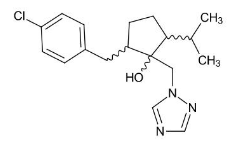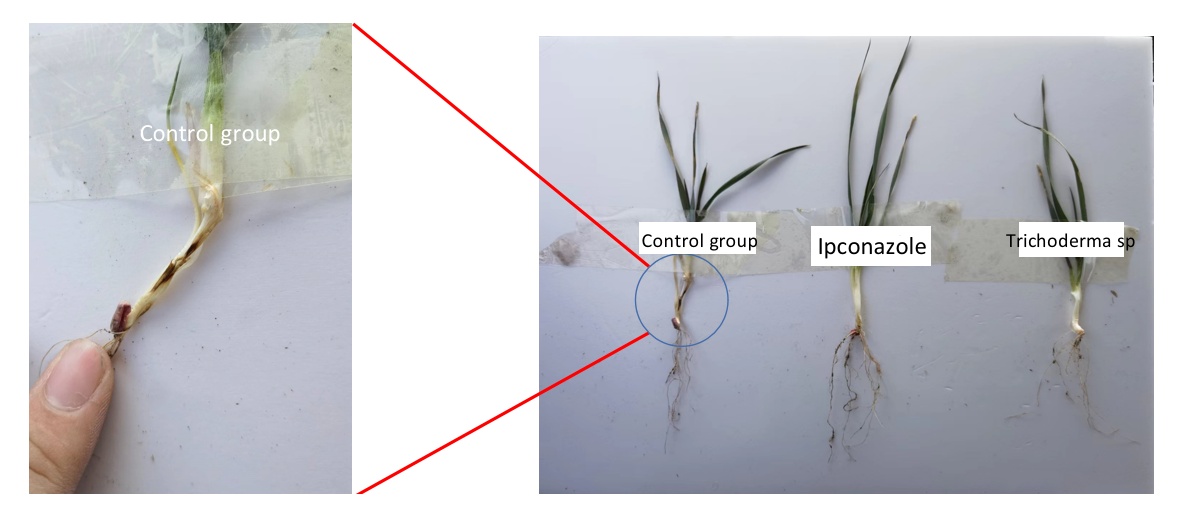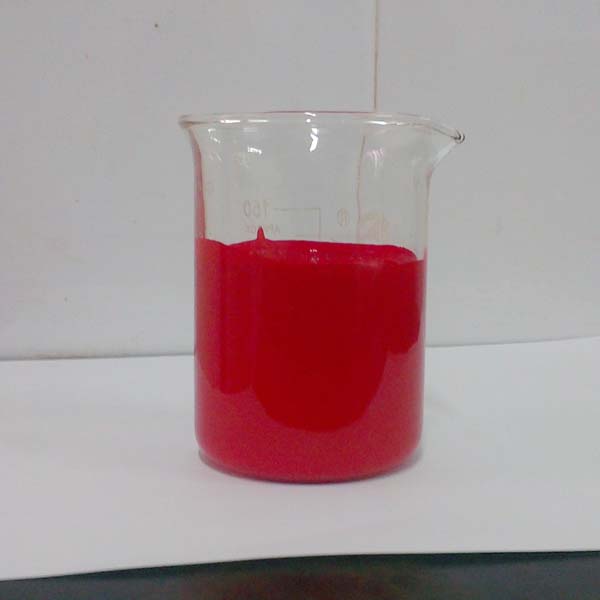
Apr . 25, 2024 10:00 Zréck op d'Lëscht
Ipconazole - a promising triazole fungicide in the future
In recent years, seed treatments have been widely used around the world. Different from previous medication habits, seed coating agents can eliminate pests and diseases before they sprout. The treated seeds can prevent insects and diseases at the same time, and are especially effective against difficult-to-treat soil-borne diseases and underground pests...
At present, there are not many types of active ingredients commonly used in the seed coating market, mainly difenoconazole, tebuconazole, metalaxyl, fludioxonil, thiamethoxam, imidacloprid, chlorpyrifos and etc. It often appears in the form of a single dose or a two-element or three-element mixture. Secondly, seed treatment agents are not very safe and often cause phytotoxicity such as low seed emergence rate. The product introduced below has high activity, good safety, and excellent seed disinfectant performance. It is Ipconazole.

Mode of action - Ipconazole is a triazole fungicide, an ergosterol biosynthesis inhibitor, and has systemic, protective and therapeutic effects. Its mechanism of action is to hinder and inhibit the synthesis of ergosterol in pathogenic fungi at different points of action, leading to cell membrane damage and death.
Application - Ipconazole is a broad-spectrum systemic fungicide that can be used in rice, cereals, ornamental plants and non-crop fields to prevent and control many seed diseases;
It is particularly effective against Gibberella fujikuroi, leaf spot (Cochliobolusmiyabeanus) and rice blast (Pyricularia oryzae). It can effectively prevent and control stem rot and head smut in the seedling stage of corn.

Advantage
High security - Ipconazole is extremely safe for monocotyledonous and dicotyledonous crops. In addition to being safe on cereals such as corn, wheat, and rice, it is also very safe on crops such as peanuts, cotton, onions, sugar beets, carrots, spinach, cabbage, and sunflowers. Compared with similar tebuconazole and difenoconazole, it has great advantages;
Broad bactericidal spectrum - Ipconazole has a very good control effect on diseases caused by ascomycetes, basidiomycetes, deuteromycetes and zygomycetes except oomycetes. It can control almost all fungal diseases when combined with metalaxyl or metalaxyl-M.
Good systemic conductivity - It has multiple functions of seed disinfection, protection, treatment and eradication;
Ipconazole has high efficiency, low toxicity, low dosage, has almost no impact on microorganisms in the soil, is safe for aquatic organisms such as earthworms and fish, and is not easy to move in the soil and has a long lasting effect;
As a seed coating agent, Ipconazole also performs well in strengthening seedlings and promoting roots.

Reference formulation
Ipconazole 1% + Azoxystrobin 5.5% + Clothianidin 25%FS
Ipconazole 1% + Azoxystrobin 5.5% + Dinotefuran 18.5% FS
Ipconazole 2.35% + Metalaxyl 1.88%FS
-
Trusted Herbicide Suppliers For Large-Scale Crop Protection
NeiegkeetenAug.20,2025
-
Overview Of Types Of Herbicides For Large-Scale Crop Protection
NeiegkeetenAug.20,2025
-
Bentazone Herbicide Application in Field Crops
NeiegkeetenAug.20,2025
-
Effective Fungicide Solutions For Large Scale Crops And Vegetables
NeiegkeetenAug.20,2025
-
Effective Crop Protection With Insecticide Concentrate
NeiegkeetenAug.20,2025
-
Thiamethoxam Half-Life in Soil and Water
NeiegkeetenAug.04,2025
